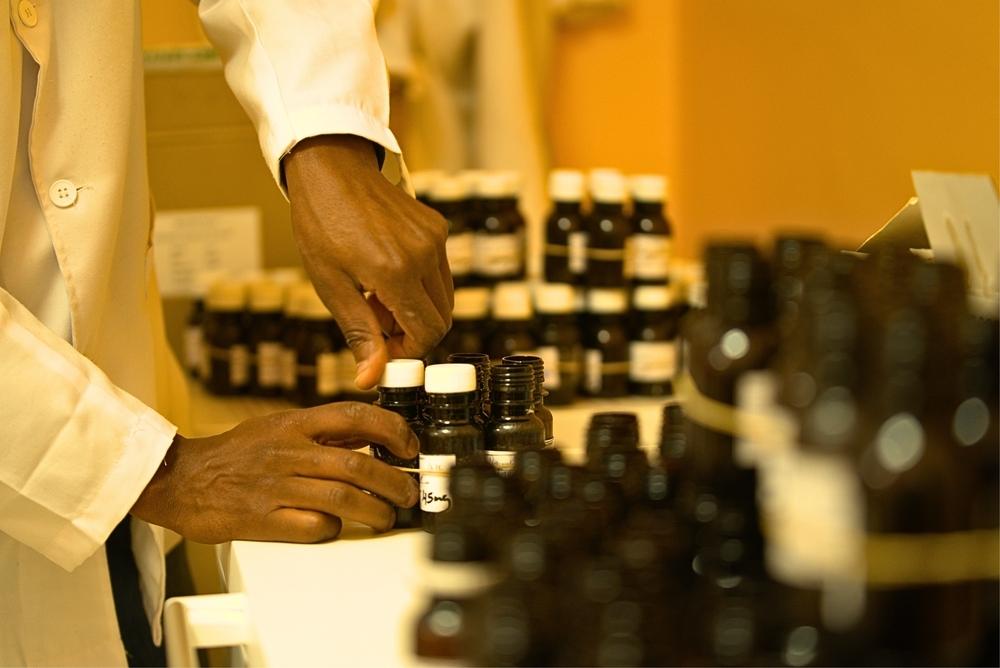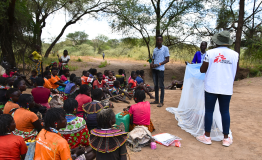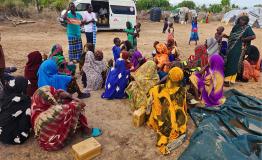Kiambu ranks fifth out of the 47 counties in Kenya, with high numbers of people who use drugs (PWUD). PWUD form part of key populations, who have four times more HIV prevalence in Kenya compared to the general population. In Kenya, Hepatitis prevalence among people who use drugs is 22%.
For 5 years, MSF has been offering Medically Assisted Therapy (MAT) services in Kiambu County, providing opioid substitution therapy (OST) to help people who use drugs (PWUD) to contain their addiction. In June, MSF handed over the facilities to the Kiambu County Department of Health and its partners. Before that, there was no existing medical facility providing care for these patients in Kiambu, and they had to travel long distances to reach the nearest MAT clinic, which was in Nairobi, resulting in the low enrolment rates for patients.
MAT services form part of harm reduction aimed at reducing deaths and disease outbreaks associated with drug addiction such as overdose, and negative health, social, legal and financial consequences of drug addiction.
The three MAT clinics, including two in prison health facilities, have a one-stop shop approach that is patient-centred whereby a patient receives care for other medical needs beyond the opioid substitution therapies through the same clinic.
People who use drugs tend not to seek healthcare easily. They are also vulnerable, neglected and have limited access to health care due to stigma and discrimination both from healthcare workers and community.
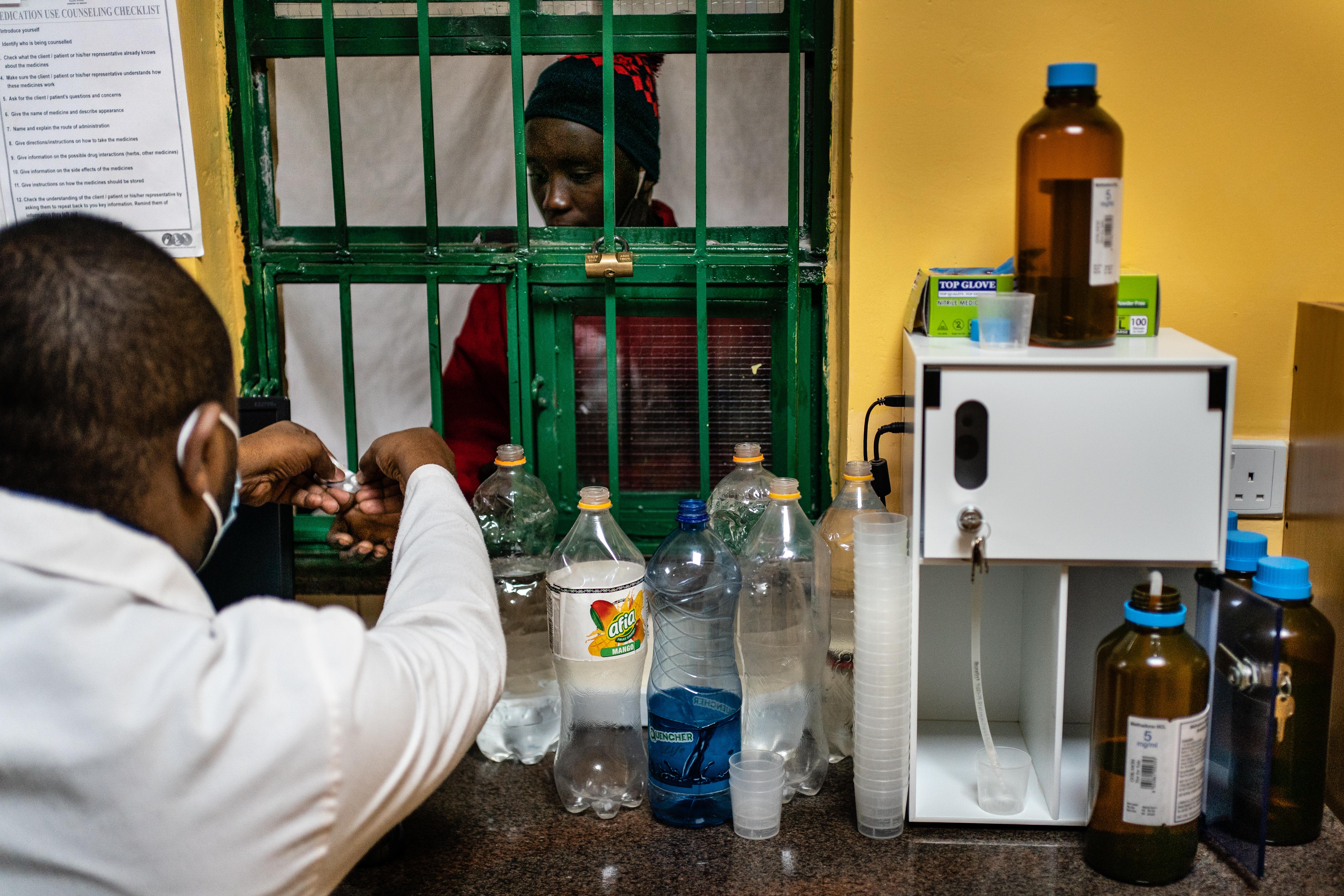
Nothing for us without us, the peer-led approach
Peers are the most important point of contact with people who use drugs. Most of the time, they are the first point of contact with patients as they have struggled with drug use themselves and now are mentors and role models to help others. They are the link between the dens, where people gather to take drugs, and the induction centre, where people who use drugs can get more information about and enter the MAT programme.
They form part of the support for patients, providing care for patients to ensure their involvement and ownership.
Peers are central to harm reduction services development and delivery. They have insights and expertisethat can support the definition, implementation, and evaluation of the program.
Even in sickness, access is ensured: take home doses and home deliveries
Patient centred approaches and innovations such as take-home doses, prison deliveries toincarcerated patients, decentralization of care and satellite dispensing sites have increases accessto MAT services, and recovery chances of people who use drugs.

Michael Mburu, 25 years old, takes home deliveries every two weeks, due to injuries.
I got introduced to heroin by my cousin and used it for three and a half years. In the drug dens, heroin is called “Nionje unitafute” meaning “taste me and look for me”. The first puff is your hook to it, then everything revolves around it. It makes you even want to work around the areas where you can find it.
I found out about methadone from people. For me to start using methadone, addiction life was hard.Heroin is not like any drug that you just decide in a day to stop using. To get a shot, and to avoid withdrawals, I found myself in petty crime. I experienced withdrawals when I missed heroin puff, the pain is unimaginable. From back aches, diarrhoea, vomiting, even sometimes nose bleeding. I had reached my life’s end.
I have been taking methadone for one year. I began in the Ngara clinic in Nairobi, and unfortunately, Igot into a road accident and was admitted to hospital for one month. After my discharge from thehospital, due to my injuries, I could not make it daily to the clinic, and that is how I was transferred to theKaruru MAT clinic, as it was nearer to home and dosage would be brought to Lusigetti health facility -one of the satellite dispensing sites.
However, when I went to the clinic with my father, we were finally allowed to take home two-weekdoses, after an assessment at home confirmed that it was safe and I had enough support to have mymedication at home.
From my first methadone dose, I never went back to heroin again, mainly because I was not experiencingwithdrawals anymore.
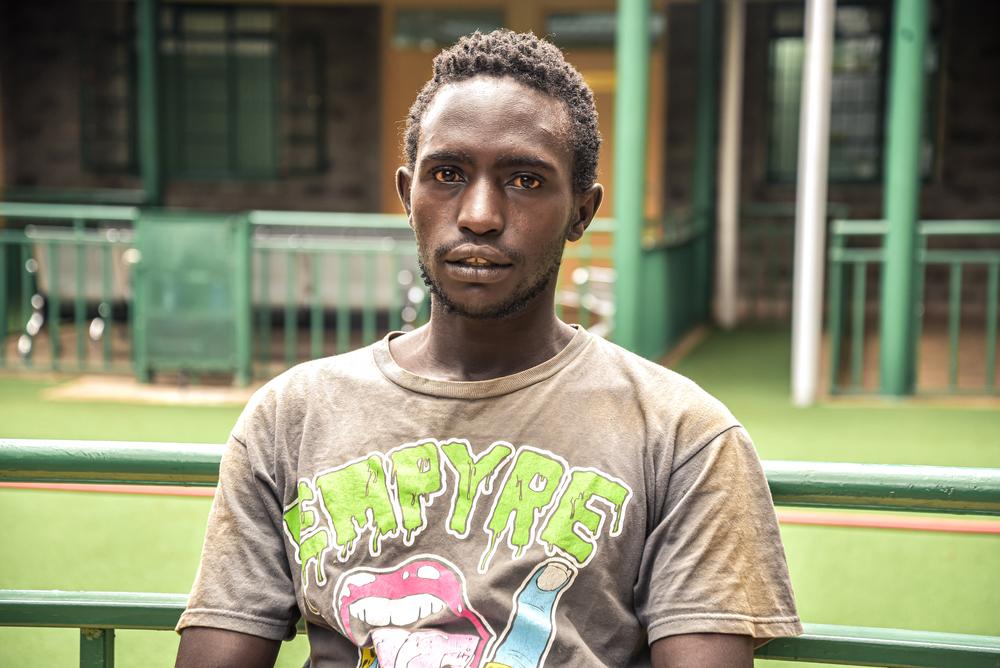
From the drug dens to the clinic, my first day of MAT services
I got introduced to heroin use by a friend. I had been using heroin for five years when I met James, a peer educator from the MAT clinic, and he spoke to me about the MAT clinic. He introduced me to LVCTHealth (an NGO), for induction into the program.
I knew I was in trouble when I started using all the profits from my business to finance my heroin use and lost it. I also desired a better life for myself, as I had gotten very skinny too.
I began theft at home to finance my drug needs. This destroyed my relationship with my mother and my siblings, and I left home. I then started stealing from the neighbours too. This was not sustainable, and the withdrawals began. I had constant headaches, cold chills, stomach aches and sometimes I could not eat.
I had two options in my mind, to either join the MAT clinic or die.
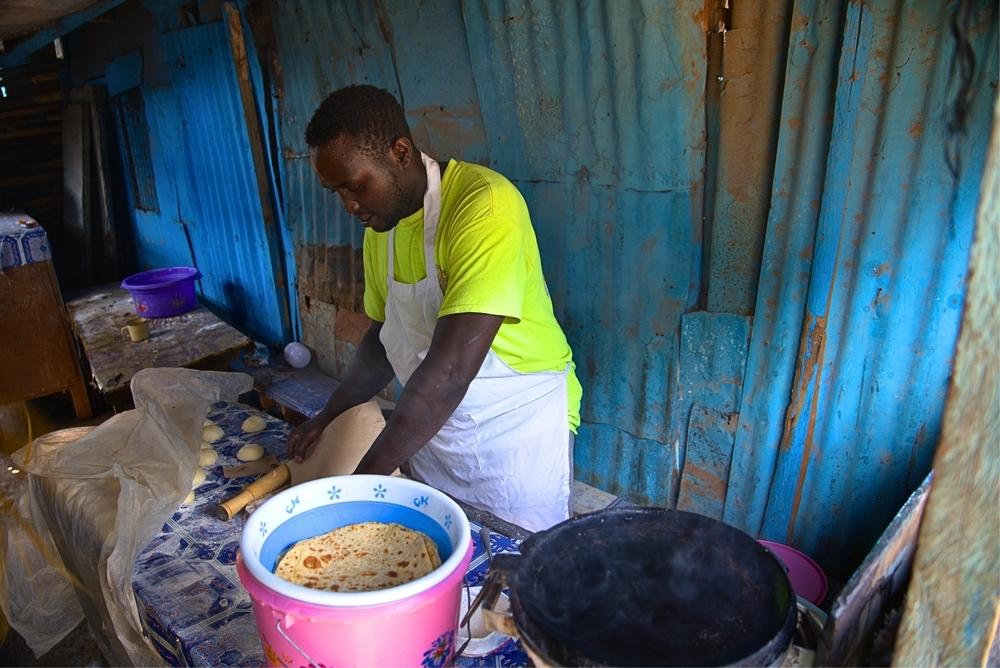
Give it all you got, relapse is part of the recovery journey
November 20, 2019 was my first day in the MAT clinic, I was very sceptical. I mark the date because it isa huge milestone in my life.
I was advised that I needed to not use heroin for at least 12 hours before coming for my first methadone dose. I remember my first dose of methadone; it was 30 grams. I felt such great relief, and this bolstered my will to make it through with the treatment.
After three years of taking methadone, my counsellor told me about Buprenorphine- a tablet form of the dosage. This was following a conversation that it was getting very hard balancing coming daily to the clinic, running my chapati business and going to school.
I have relapsed three times in my recovery journey, and the last two years I have been consistent with myMAT clinic.
My chapati business sustains my young family, and I can say MAT has given me my dignity back!
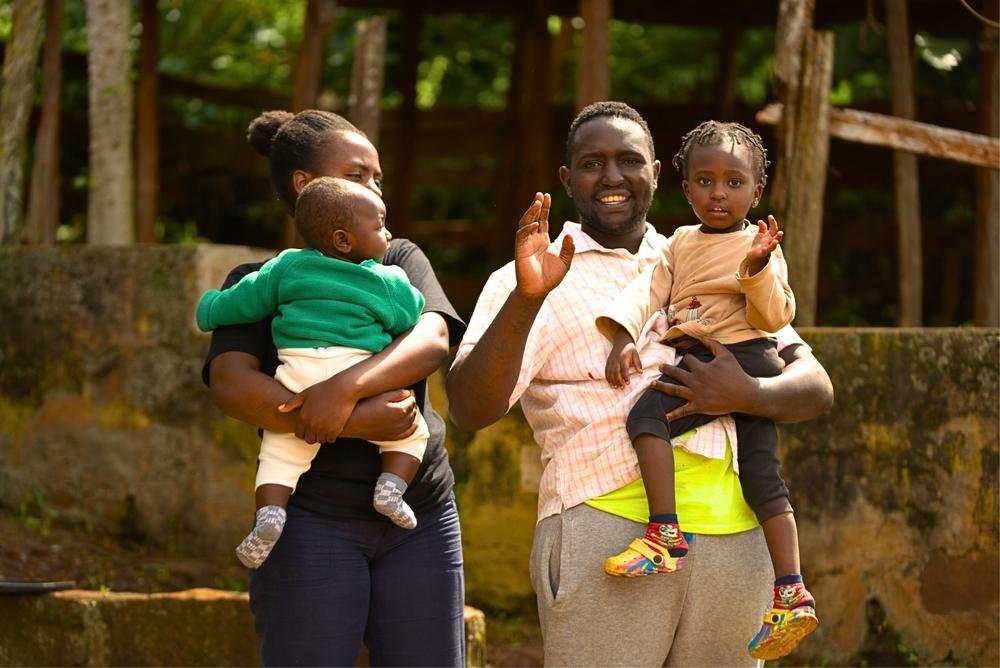
Family and community support is boundless
I am Mary Wairimu, Michael Karongo’s wife.
“I met Michael three months after he began MAT. I did not know that he was recovering from addiction until he disclosed this to me. I remind him sometimes to take his dosage. Due to him going to school and work schedules, he sometimes forgets about his medication.
He was not a very clean person then, and I used to remind him even on going to the clinic daily.
It feels good to support someone willing to change his life, it gives me motivation to see him better. I see his progress as he has been in school for two years now working on his degree in catering, and even his dosage has gone down.
In the end, even when you feel like they are taking time to progress, eventually if they are willing, they will do it and give back with the determination to change.
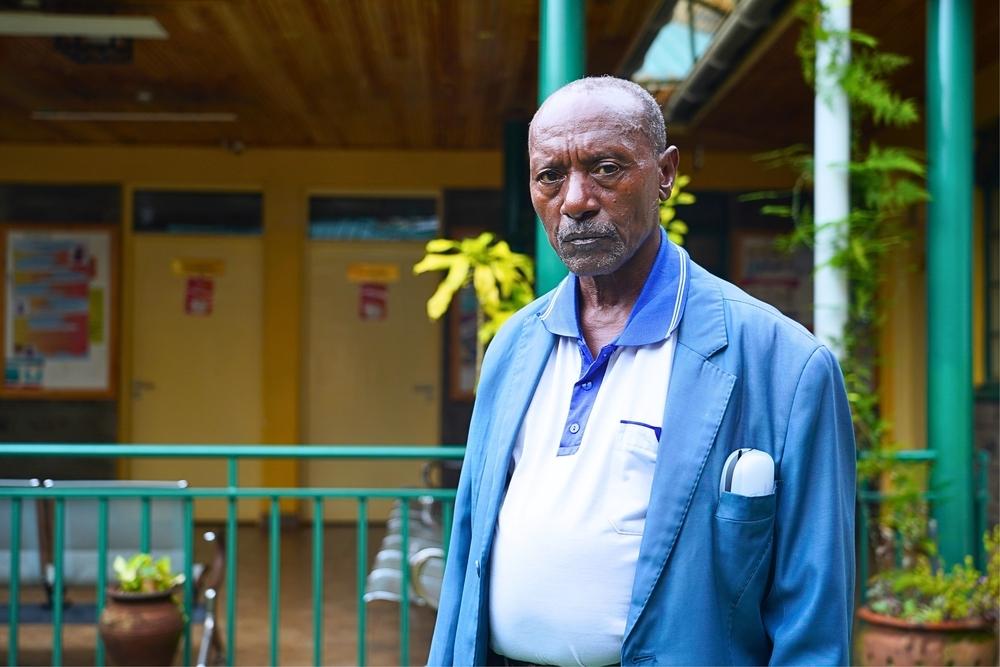
Family therapy: Because supporters need a shoulder too
“My son has been using drugs for many years. I did not understand him and at some point, I even chased him from home, and we were estranged for five years. I did not know that drug addiction is a health issue until I was invited to the clinic for counselling with him, as part of providing support. He has been in the MAT clinic for 5 years with relapses in between.
Navigating life with a child using drugs is not easy, it even causes strife among parents. After this visit, I understood that it is a disease, and I changed my mind.
Through this support, I have been able to support him too. I am a community health promoter, and knew this clinic existed but was not concerned to learn about it, until my son invited me after a visit with a counsellor.
During the family therapy sessions, we start with the serenity prayer, then everyone speaks on how their week has been. The challenges faced and even wins. The counsellor proposes a topic based on his assessment of the needs within the group and even with this, we may stop, comfort and support one of us struggling.
I had a lot of self-stigma in the beginning, I kept blaming myself why my child was using drugs while as a leader in the community, he should have been representing me as a role model.
Counselling has given me knowledge of how to support my son, the triggers for relapse and how to gethelp as a supporter. Interacting with other parents and family members has also given me a shoulder to lean on as I know I am not alone.
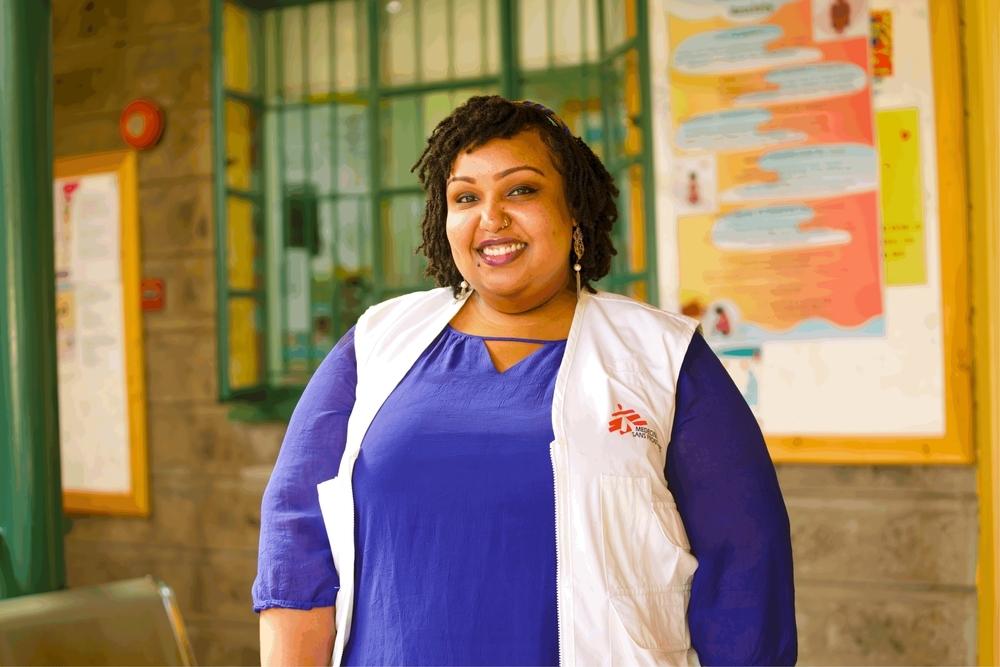
Psychosocial aspects in the MAT clinic accounts for 80 to 90 per cent of the recovery outcomes
“Each patient that comes has a unique MAT identification and is paired with a primary social worker, an addiction counsellor and community health worker to be able to follow-up them up while on treatment.Patients are then supported to create treatment goals that are meant to guide their treatment interventions as part of the psychosocial and mental health support. One of the main treatment goals that comes up with most of our patients is reintegration with family and society. Teaching them self-regulation without necessarily using drugs is key. This is because while in addiction, drug use was the only coping mechanism they knew. Meaning, when they were happy, they’d use drugs, when they were sad, they’d use drugs, when they had money, they would use drugs. Their lives revolved using drugs and getting money (through any means necessary) to buy drugs.
We go beyond providing mental health services to the patient only and initiate tailor-made support to have treatment supporters integrated in the treatment plan as well. We do this by providing psycho education, group therapies as well as conducting home visits to enhance family support and reintegration thus better treatment outcomes.
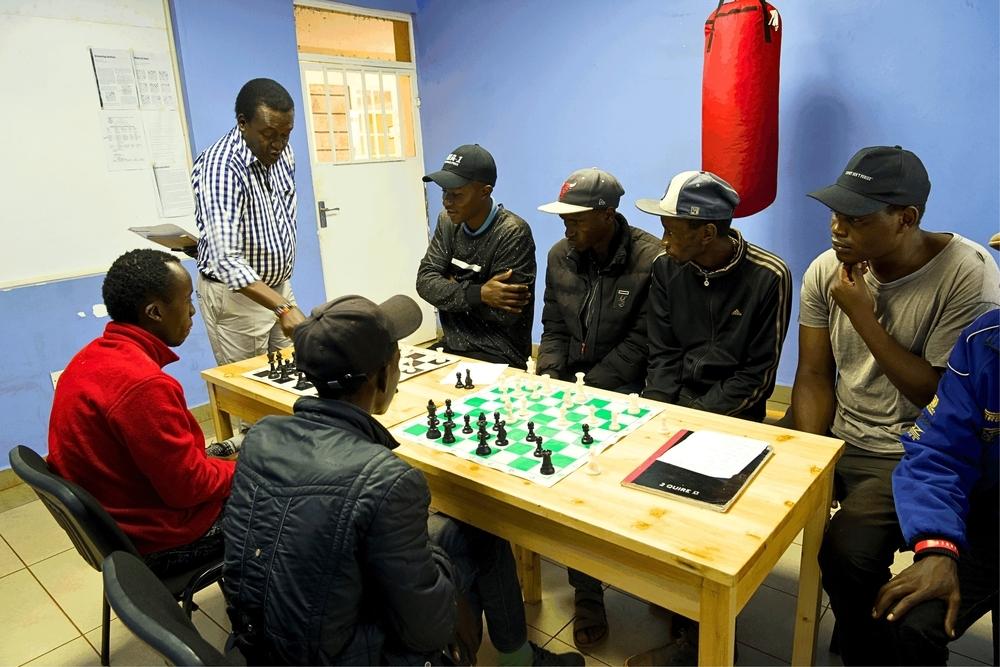
Social reintegration and empowerment centre activities
The empowerment centre acts as a safe space where patients engage in activities geared towards enhancing their well-being. Patients engage in gaming activities like boxing, yoga, chess, pool table and other edutainment activities like movie screening to enhance their knowledge and discipline. In addition, patients have access to capacity building on behaviour change and income generating activities.
The patients have self-organised themselves in the different activities they want to be part of.
Beyond medical care, social reintegration and support for patients remains a critical factor in enhancing recovery and reducing stigma as social, and economic support reduces the chances of relapsing.
